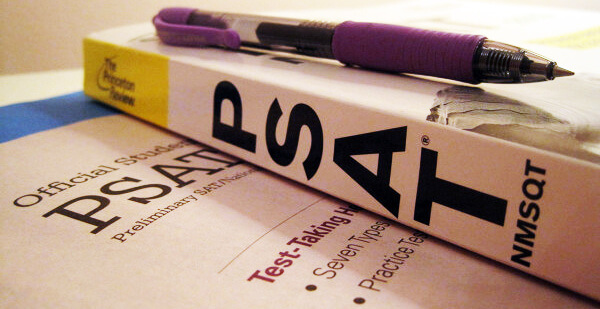 Most students will have to face it at some point: the dreaded standardized testing cycle that high school juniors across the country study and stress about for countless hours every year. But before the rigorous studying and frequent mock tests comes the PSAT. This test is generated every year for juniors to try for a qualifying score for the National Merit Scholarship, but to also experience a mock test in a realistic classroom setting. Before getting to the actual test, it takes nearly forty-five minutes to fill out the necessary information that the test requires in order to submit your scores. At the very end of this form, there is a contract that students must re-write and then sign, stating that they will not talk about or share information about the test after they have taken it. You would think that this would prevent people from discussing the PSAT after it is taken across the country, but such was not the case.
Most students will have to face it at some point: the dreaded standardized testing cycle that high school juniors across the country study and stress about for countless hours every year. But before the rigorous studying and frequent mock tests comes the PSAT. This test is generated every year for juniors to try for a qualifying score for the National Merit Scholarship, but to also experience a mock test in a realistic classroom setting. Before getting to the actual test, it takes nearly forty-five minutes to fill out the necessary information that the test requires in order to submit your scores. At the very end of this form, there is a contract that students must re-write and then sign, stating that they will not talk about or share information about the test after they have taken it. You would think that this would prevent people from discussing the PSAT after it is taken across the country, but such was not the case.
Twitter, Facebook, and all forms of social media were filled with memes and jokes making fun of the test immediately after it was completed. These hilarious memes were only truly funny to the juniors who experienced the grueling three hour test. But all jokes aside, this social media storm that captivated the internet on October 19th exposed an ethical dilemma of academic integrity. Were students in the wrong for discussing the test even though it was over with? Did this exposure of a standardized test across America exhibit how willing teeangers are to nonchalantly break a contract that they sign?
At Fieldston, issues regarding academic integrity are taken to the AIB (Academic Integrity Board) when students violate rules the school has implemented. This council consists of eight students and multiple teachers.
Current student-representative Miles Miller (V) who took the test said, “although the viral memes are about the PSAT, I don’t particularly view them as a breach of Academic Integrity. Yes, the memes were based on topics from the test, but there were no memes that actually discussed answers or could even influence a person’s performance on the test. After all, the College Board that created and controls the test was not opposed to the memes either.”
Another Junior who took the test, Jack Resnick, who served on the AIB his Sophomore year said, “although I do not condone this type of behavior, I believe that since no student received any advantages or disadvantages because of the new information, this is not a large problem. However, if the test was discussed during a time at which it impacted the performance of other students, that would be an entirely different story.”
Because the overwhelming majority of the students who took the test discussed it and read the memes/jokes, these minor infractions that happened at such a large scale, were not, and should not be taken seriously, considering the test did not really count for anything. But it raises concerns for the immediate future when actual SAT and ACT tests are being taken across the country. Although it is inevitable that students will talk about tests they take which play a role in their collegiate future, it is unsettling to think about so many people immediately breaking a contract that they agree to.






I need the meeeeemes to survive